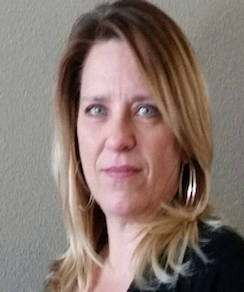This post is part of a new blog series called Transformative Change Initiative (TCI) Featured Evaluator, that includes interviews with members of TCI’s Evaluation Collaborative. This community of evaluators has a wealth of knowledge, experience and insights into evaluation of the TAACCCT grants that are being implementation throughout the United States. Want to be profiled or know someone who would make a great feature? Email us at occrl@illinois.edu.
Name: Leah Woodke
Current position: President, Woodke 360
Short bio: Dr. Woodke has almost 30 years of experience in education ranging from early childhood to higher education; 12 of those years were in Tribal higher education. She has extensive background working with federal grant programs. She is an experienced project consultant and evaluator and has worked with organizations in the private, public and tribal sectors. Dr. Woodke holds a Master of Education degree in Educational Leadership and a PhD in Education with a focus on instructional design for online learning.
Q: What is the design and predominant methods for your TAACCCT evaluation?
A. The TAACCCT evaluation design was participative in nature. Each consortium member had a stake in the evaluation, which was important to the Tribal Colleges. The evaluation took into account each consortium member’s contribution to the project. The project evaluation used mixed methods in an explanatory case study approach to evaluation. The evaluation included multiple levels of data from multiple sources and multiple stakeholders. Information came from regular interactions with project personnel, direct observations, student and faculty surveys, student data records, interviews with senior personnel and executing leadership, and community and stakeholder focus groups.
Q. What advice do you have for new TAACCCT evaluators?
A. My advice for new TAACCCT evaluators, particularly for those working with consortium projects, is to get to know the people involved in the project. Spend some time with project personnel and project participants. Begin your communication with the TAACCCT grantee early and communicate often. Find out what is important to them and marry that with what is required by the DOL. Make sure the evaluation plan is realistic for them, respects the context and culture of the organization, helps them learn more about works at their institutions, and that the benefit they receive is more than simply compliance with DOL requirements.
Q. What questions do you have for others about TAACCCT evaluation?
A. I think it would be great if we could share examples of reports. Sometimes I feel like I flounder a little on crafting reports that tell a full and comprehensive story in a way that organizes the information so that it is easy for people to digest. As an independent evaluator, I think it would be great if I could have a kind of support group to go to for ideas and inspiration.
Q. Do you have tools, reports or other products you are willing to share?
A. Some of the reports I’ve done for the Tribal College DeMaND project have been posted online and can be downloaded at http://demandworkforce.com. In addition, we did a video executive summary to accompany the summative evaluation report, which will be made available soon. I am doing a session at AEA on Saturday morning on strategies we use for focus groups with Tribal College students and community members. I would love to see you there!
Leah can be reached at leah@woodke360.com.
